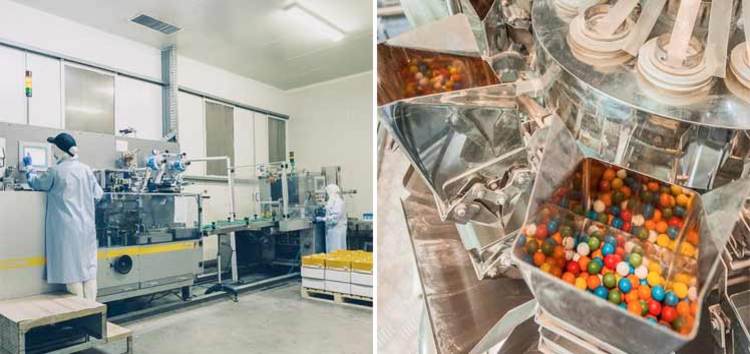FINTECC Supports Rooftop Solar Installation at Maghreb Industries

Maghreb Industries is an export-oriented business. Based in Casablanca, Morocco, the confectionery and chewing-gum producer sells half its production to the US, Europe and Africa. But when CEO Hakim Marrakchi visited a customer’s chocolate factory in Belgium, he saw something that he wanted to import.
“The factory was producing and running on solar energy,” Marrakchi says. “And I thought to myself, if they can produce solar in Belgium, where it rains all the time, then why can’t we produce it in Morocco, where we have so much sun?”
It turned out to be a good question. With assistance from FINTECC, Maghreb Industries has installed a photovoltaic (solar energy) plant on the roof of its new factory, along with various energy-efficiency measures that have helped reduce the company’s energy costs by 60%.
A difficult balance
By the time Marrakchi encountered the solar plant at the Belgian chocolate factory, improving energy efficiency was already one of his top priorities. The factory had high energy requirements, and costs had been rising sharply due to global price fluctuations (Morocco imports 97% of its energy resources) and decreased government subsidies.
Although solar power presented an obvious solution in theory, putting it into practice was more complicated, Marrakchi explains.
“For an efficient energy system to work, you need to have a balance between energy produced and energy consumed,” he says. “Our energy needs vary widely and we wouldn’t always need all the energy the solar plant would produce. However, you can’t inject excess electricity into the national grid in Morocco, so we needed to find a way to store it.”
Innovative system reduces costs, reliance on national grid
Working with FINTECC experts, Marrakchi developed a solution that would allow Maghreb Industries to reap the benefits of solar power, while mitigating the risks and challenges. In addition to the EBRD’s €4.6 million loan to fund the construction of the new factory, FINTECC provided a €360,790 incentive grant and technical support to implement a range of renewable and efficient energy technologies, including:
- Rooftop photovoltaic installation: With a capacity of 1,361 kWp, this rooftop solar plant is the largest in Morocco. To prevent injecting electricity into the grid, surplus solar energy is used to heat boilers.
- Cold storage system: This innovative, ice-based energy storage system allows energy to be drawn from the grid and stored during off-peak hours, and used by the cold storage chillers during peak hours. This optimises capacity requirements and increases cost and energy efficiency.
- External insulation: Applied like paint to building facades, this thin, ceramic-based substance has excellent insulating properties.
- Heat recovery chimney: A special system to capture waste heat in the boiler chimney improves the boiler’s efficiency.
- Energy management system (EMS): An electronic EMS collects data from all energy consumption points and aggregates them to a single, computer-based display system.
- ISO 50001: This energy management tool requires the company to develop a formal energy efficiency policy, with targets, indicators, measurement systems, and a continual review process to identify improvements.
Positive difference
According to Marrakchi, the system is not yet fully implemented, but it is already making a positive difference — and more swiftly than anticipated.
“In addition to providing crucial financial and technical resources, EBRD showed me the profit potential of this new system,” he says. “Initially I had planned to implement it slowly and step-by-step, but the fact that EBRD experts thoroughly audited our proposal — and found it sufficiently compelling to support — gave me the confidence to move more quickly.”
Currently the solar plant is producing up to 60% of the factory’s energy needs, decreasing the company’s reliance on gasoline and expensive grid electricity. Air treatment — which accounts for 40% of the factory’s energy consumption — is now much more efficient and cost-effective, thanks to the cold storage system.
Owing to these measures, Maghreb Industries is enjoying not only lower energy bills, but also a smaller carbon footprint — a benefit that Marrakchi believes may give the company a competitive edge among increasingly climate-conscious stakeholders in the US and Europe.
Maghreb Industries is poised to continue benefiting from these efficiencies as it ramps up production to meet 60% sales-growth targets by 2020. In the meantime, Marrakchi hopes that the example of Maghreb Industries will inspire other businesses in Morocco to explore solar power and improve energy efficiency.
“We’ve presented the project several times in the area and a number of companies have asked for our help doing the same,” he says. “The energy situation is difficult in Morocco, but difficulty provokes innovation."
